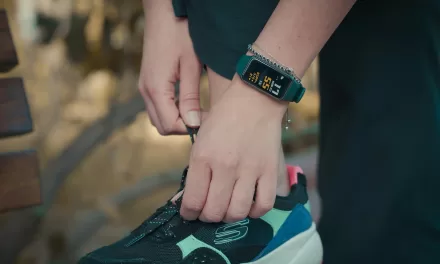For many individuals, losing weight marks a major milestone toward improved health and well-being. Whether through lifestyle changes, medication, or bariatric surgery, shedding excess pounds often brings enhanced quality of life and psychosocial benefits. However, not everyone experiences the expected boost in self-image after weight loss. A significant number of people struggle with an issue known as “phantom fat,” “ghost fat,” or “vestigial body image” — a phenomenon where they fail to perceive the changes in their bodies, continuing to see themselves as overweight.
The Challenge of Body Perception
Dr. David Sarwer, director of the Center for Obesity Research and Education at Temple University, notes that while many individuals are satisfied with their new body shape after weight loss, a subset remains dissatisfied. “Some patients are unhappy with loose, sagging skin following weight loss, which may prompt them to seek plastic surgery,” Sarwer explains. “But for others, body dissatisfaction runs deeper, potentially tied to long-standing psychological issues.”
For those affected by “phantom fat,” weight loss does not translate into a more positive body image. In fact, some individuals may struggle to recognize the changes in their size and shape, even months after significant weight reduction. A study of bariatric surgery patients found that many were unable to see their new, thinner selves even 18 to 30 months post-surgery, despite the substantial physical transformation.
Habituation and Social Stigma
Part of the reason for this mental dissonance may lie in the brain’s difficulty in catching up to a new appearance. “This can be seen in other body-altering procedures as well,” says Sarwer. “For example, patients who undergo rhinoplasty may take time to adjust to seeing their new face after years of looking at a more prominent nose.”
Adding to the challenge is the enduring social stigma around obesity. Overweight and obese individuals are often subjected to negative stereotypes, including perceptions that they are lazy or lack willpower. This stigmatization can leave deep psychological scars, shaping an individual’s self-concept long after they have lost weight. Social media and popular culture, with their glorified body ideals, only exacerbate these insecurities.
Dr. Sheethal Reddy, a psychologist at Emory University, emphasizes that body image is more than what one sees in the mirror. “It’s a mental construct,” she explains, shaped by societal expectations and influenced by one’s ethnic, racial, and cultural background. Adolescents, in particular, are vulnerable to body dissatisfaction, especially if they experience weight-based teasing or bullying during their formative years.
Genetics and Trauma
Genetics can also play a role in body dissatisfaction. Research suggests that genetic predisposition to higher body mass index (BMI) may be linked to greater body dissatisfaction, regardless of actual weight. Additionally, adverse life experiences, such as sexual or physical abuse, can lead to body image disturbances. Sarwer notes that excess weight may serve a self-protective function for some survivors of abuse, insulating them from unwanted attention. For these individuals, losing weight may bring up painful memories or make them feel vulnerable in their thinner bodies.
The Need for Mental Health Support
Mental health counseling is critical for those experiencing body image issues after weight loss, yet it is often underutilized. Cognitive behavioral therapy (CBT), in particular, has proven effective in addressing body dysmorphia by helping individuals reframe distorted beliefs about their appearance.
“CBT allows patients to recognize and challenge irrational thoughts and behaviors related to their body image,” Sarwer says. Programs tailored specifically to the needs of individuals who have undergone significant weight loss can be transformative, helping them focus on their overall well-being rather than just physical appearance.
A Holistic Approach to Health
Ultimately, weight loss should be viewed as part of a broader journey toward physical and mental health. Experts like Dr. Supatra Tovar, a psychologist and dietician, emphasize the importance of self-compassion and self-worth throughout the process. “Becoming thin doesn’t automatically equate with happiness,” she notes. “If you haven’t addressed deeper issues related to self-worth, weight loss can leave you feeling empty.”
Medical professionals play a key role in supporting patients through this journey. Tovar encourages doctors to engage in nonjudgmental conversations about health and body image, helping patients set realistic expectations and prioritize mental well-being alongside physical health.
For those dealing with “ghost fat,” the path to true self-acceptance may take time and effort. With the right support, they can begin to see themselves as they truly are — healthier, stronger, and more empowered than ever before.













